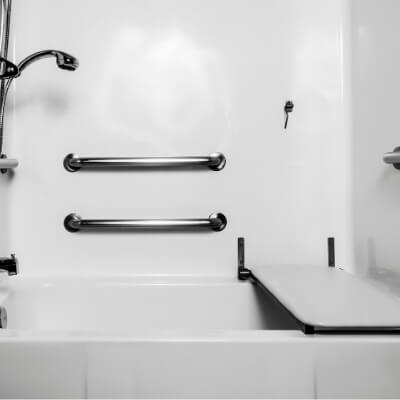Tips for Elderly Caregivers: How to Manage When You're a Senior

Being a caregiver is a big job, even when the one you’re helping is a spouse or loved one. It can be physically, emotionally and mentally demanding, and if you’re a senior, you may easily feel overwhelmed or exhausted. That’s why it’s important to take care of yourself in every way so that you can be the best caregiver you can be.
It’s also important to think about ways you can modify your home for the safety and comfort of your spouse, especially if they have been diagnosed with Alzheimer’s disease or are at risk. Some of these may be fairly easy DIY projects, while others will require a professional touch. For any project, you’ll want to work out a budget and plan for the care of your spouse during any renovation, especially if it will mean making changes to your loved one’s daily schedule for a while.
Here are some of the best tips on how to manage caregiving when you’re a senior.
Stay Organized
One of the best ways to avoid stress and anxiety is to stay as organized as possible. This means keeping track of any paperwork, bills, medical info, and anything else that’s important and making sure it’s all easily accessible. Separate everything into folders and label each one. For example, you should keep everything from your loved one’s doctor in one folder and insurance information in another.
Make it Safe
One of the most important things you can do for your loved one -- and for yourself -- is to make sure your home environment is safe. This means going through each room to ensure there are no trip hazards like loose cords or throw rugs, that stairs have a sturdy handrail and are well-lit, and that each room has easily-accessible countertops, shelving, and sinks.
It may also be necessary to make modifications to some rooms. The bathroom is usually the first place to need renovations, which might include installing a grab-bar or seat in the shower and a removable shower head.
If your loved one has been diagnosed with Alzheimer’s disease or is at risk of developing it, it’s a good idea to start thinking about home modifications that will keep them safe, like a motion sensor on the doors. Find out some other great ways you can prepare your home for your loved one with Alzheimer's. 
Practice Self-Care
Self-care is incredibly important for caregivers, in part because there is a lot of physical and emotional strain to bear. Getting enough rest is imperative, but it’s also important to keep up with a daily exercise regimen and to eat well-balanced meals. Keep in mind that it’s also necessary to take some time for yourself when you can. No one can do everything on their own, so take breaks to avoid becoming overwhelmed. And don’t be afraid to ask for help, either from a friend or loved one or from a professional nurse who can come and give you a break. There are other support outlets available to caregivers that do not just include friends or family.
Have a Plan
It’s important to have a plan in place in case of emergencies, such as a fire or natural disaster. Look online for resources that will give aid in your area and map out an escape route should you need to help your loved one get away quickly. This is also a good idea if you live in an area where tornadoes and other natural occurrences are prevalent.
Being a caregiver is a lot of work, but with a good plan and some organization, you’ll be able to ensure your loved one is well taken care of. Keep up communication with your family members so that everyone is on the same page and remember to take a break when you need one to avoid becoming overwhelmed.












